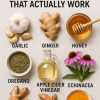Understanding Testosterone: What It Is and How to Maintain Healthy Levels
Testosterone is the cornerstone of male vitality, influencing muscle growth, energy levels, and sexual health. As men age, natural testosterone levels can decline, leading to decreased performance and well-being. Testosterone plays a crucial role in men’s health, influencing muscle mass, bone density, libido, and overall vitality. As men age, testosterone levels naturally decline, leading to various health concerns. This decline has spurred interest in methods to boost testosterone, including the use of dietary supplements.
 |
| 10 Proven Strategies to Boost Testodterone Naturally (for Men) |
What Is Testosterone? Understanding Testosterone and Its Importance
Testosterone is a hormone primarily produced in the testicles for men and in smaller amounts in women’s ovaries.
It is responsible for the development of male sexual characteristics, muscle growth, bone density, and the regulation of libido.
Testosterone is a crucial hormone in men, influencing muscle mass, bone density, libido, and overall vitality. As men age, testosterone levels naturally decline, leading to various health concerns.
This decline has spurred interest in methods to boost testosterone, including the use of dietary supplements.
Symptoms of Low Testosterone
When testosterone levels drop, men may experience:
- Decreased libido
- Erectile dysfunction
- Fatigue and reduced energy levels
- Loss of muscle mass
- Increased body fat
- Mood changes, such as depression or irritability
Testing Testosterone Levels
If you suspect low testosterone, a blood test can measure your hormone levels. It’s typically done in the morning when testosterone levels are highest. Your doctor may recommend multiple tests to confirm the diagnosis.
Natural Ways to Boost Testosterone
While supplements are often marketed to increase testosterone, lifestyle changes can also make a significant impact:
- Exercise Regularly: Strength training and high-intensity interval training (HIIT) can boost testosterone levels.
- Maintain a Balanced Diet: Foods rich in zinc, vitamin D, and healthy fats support hormone production.
- Get Adequate Sleep: Aim for 7-9 hours per night to regulate hormone levels.
- Manage Stress: Chronic stress elevates cortisol, which can negatively impact testosterone.
When to Seek Medical Advice
If lifestyle changes don’t improve symptoms, consult a healthcare professional. They may explore other treatments, including hormone replacement therapy, depending on your individual needs.
Can You Boost Testosterone with Supplements? The Truth Revealed
In today’s health-conscious world, many men are exploring ways to naturally enhance their testosterone levels. Supplements are often touted as a solution, but how effective are they really? Let’s delve into the facts.
Common Supplements Claimed to Boost Testosterone
Several supplements are marketed with claims of enhancing testosterone levels:
- Zinc and Magnesium: Essential minerals involved in numerous bodily functions, including hormone production. Some studies suggest that supplementation may benefit those with deficiencies.
- Vitamin D: Known for its role in bone health, vitamin D deficiency has been linked to lower testosterone levels. Supplementation might help, especially in deficient individuals.
- Tribulus Terrestris: An herbal supplement traditionally used to enhance libido. However, scientific evidence supporting its effectiveness in boosting testosterone is limited.
- Ginseng: Believed to have adaptogenic properties, ginseng may influence hormone levels and combat fatigue.
⚠️ Potential Risks and Considerations
While some supplements may offer benefits, they are not without risks:
- Health Risks: Excessive intake of certain supplements can lead to adverse effects, including liver damage and cardiovascular issues.
- Lack of Regulation: The supplement industry is not as tightly regulated as pharmaceuticals, leading to variability in product quality and potency.
- Interactions with Medications: Supplements can interact with prescription medications, potentially causing harmful effects.
Recommendations for Safe Supplement Use
If considering supplements to boost testosterone:
- Consult a Healthcare Professional: Before starting any supplement regimen, discuss it with a doctor or pharmacist to ensure safety and appropriateness.
- Choose Reputable Brands: Opt for products from well-known manufacturers that provide transparent ingredient lists and have undergone third-party testing.
- Monitor Dosages: Adhere to recommended dosages and avoid combining multiple supplements without professional guidance.
- Focus on Lifestyle: Incorporate regular exercise, a balanced diet, adequate sleep, and stress management techniques to naturally support testosterone levels.
Fortunately, there are effective, science-backed methods to naturally enhance testosterone production. In this guide, we’ll explore 10 actionable and proven strategies to help you boost testostetone and reclaim your vigor and optimize your health.
1. Incorporate Natural Testosterone-Boosting Supplements
Certain herbs and nutrients have been shown to support testosterone production:
- Tribulus Terrestris: Known for stimulating luteinizing hormone, which signals the testes to produce testosterone.
- Fenugreek: Contains saponins that may increase testosterone levels and enhance libido.
- Ashwagandha: An adaptogen that can reduce cortisol levels, potentially leading to increased testosterone.
- Zinc and Vitamin D: Essential nutrients that play a crucial role in hormone production.
Incorporating these supplements into your regimen may support hormonal balance and overall well-being.
Top Testosterone-Boosting Foods for Men: Eat Your Way to Vitality
If you’re aiming to naturally enhance your testosterone levels, incorporating specific foods into your diet can make a significant difference. Here’s a list of potent testosterone-boosting foods:
- Oysters: Renowned for their high zinc content, oysters are a classic choice for supporting testosterone production. Zinc plays a crucial role in hormonal health.
- Egg Yolks: Rich in vitamin D and cholesterol, egg yolks provide essential nutrients that aid in testosterone synthesis.
- Red Meat (Beef): Beef is a great source of protein, iron, and zinc—all vital for testosterone levels. Opt for lean cuts to balance health benefits.
- Cruciferous Vegetables: Vegetables like broccoli and cauliflower contain compounds that can help reduce estrogen levels, indirectly supporting testosterone.
- Dark Chocolate: High in antioxidants and magnesium, dark chocolate can contribute to hormonal balance and improve mood.
- Avocados: Packed with healthy fats, avocados support hormone production and overall health.
- Berries: Strawberries, blueberries, and raspberries are rich in antioxidants, protecting testosterone-producing cells from oxidative stress.
- Oats: A good source of B vitamins, oats can aid in testosterone production and energy levels.
- Tuna: High in vitamin D, tuna supports testosterone levels and heart health.
- Beans: Beans are rich in zinc and vitamin D, making them excellent for boosting testosterone.
Incorporating these foods into your daily diet can naturally support and enhance your testosterone levels, leading to improved energy, mood, and overall well-being.
2. Limit Prolonged Steady-State Cardio
While cardiovascular exercise is beneficial for heart health, excessive long-duration cardio can negatively impact testosterone levels.
Endurance activities like marathon running have been associated with reduced testosterone production.
Actionable Tip: Balance your workout routine by incorporating strength training and high-intensity interval training (HIIT) to support hormonal health.
3. Embrace High-Intensity Interval Training (HIIT)
HIIT involves short bursts of intense activity followed by brief recovery periods. This training method not only burns fat efficiently but also preserves muscle mass and supports testosterone production.
Actionable Tip: Integrate HIIT sessions into your weekly exercise routine to maximize hormonal benefits.
4. Prioritize Protein Intake
Adequate protein consumption is vital for muscle repair and hormone synthesis. Diets rich in protein and balanced in carbohydrates and fats have been linked to optimal testosterone levels.
Actionable Tip: Include high-quality protein sources like lean meats, eggs, and dairy products in your meals.
5. Consume Cruciferous Vegetables
Vegetables such as broccoli, Brussels sprouts, and watercress contain compounds that may help reduce estrogen levels, thereby supporting testosterone balance.
Actionable Tip: Incorporate a variety of cruciferous vegetables into your diet to promote hormonal health.
6. Moderate Alcohol Consumption
Excessive alcohol intake can lead to increased inflammation and decreased testosterone production. Limiting alcohol can help maintain hormonal balance.
Actionable Tip: Aim to consume alcohol in moderation, adhering to recommended guidelines.
7. Include Healthy Fats in Your Diet
Fats are essential for hormone production, including testosterone. Monounsaturated and saturated fats, found in foods like olive oil, avocados, and nuts, support testosterone synthesis.
Actionable Tip: Incorporate healthy fats into your meals while avoiding excessive intake of polyunsaturated fats, which may negatively impact testosterone levels.
8. Ensure Adequate Sleep
Quality sleep is crucial for hormone regulation. Sleep deprivation can lead to decreased testosterone levels and impaired overall health.
Actionable Tip: Aim for 7-9 hours of uninterrupted sleep each night to support hormonal balance.
9. Manage Stress Levels
Chronic stress elevates cortisol, a hormone that can suppress testosterone production.
Actionable Tip: Incorporate stress-reducing practices such as meditation, deep breathing exercises, and regular physical activity into your daily routine.
10. Engage in Regular Strength Training
Resistance training stimulates testosterone production and promotes muscle growth. Compound movements like squats and deadlifts are particularly effective.
Actionable Tip: Incorporate strength training exercises into your fitness regimen at least 2-3 times per week.
Conclusion
Enhancing testosterone levels naturally involves a multifaceted approach, including dietary adjustments, exercise modifications, and lifestyle changes.
By implementing these ten strategies, you can support your hormonal health, improve physical performance, and enhance overall well-being.
Medical Sources
- Wang, C., et al. (2007): “Testosterone therapy in men with androgen deficiency syndromes: An Endocrine Society Clinical Practice Guideline.” The Journal of Clinical Endocrinology & Metabolism, 92(6), 2005–2010.
- Maggio, M., et al. (2005): “Relationship between testosterone and the metabolic syndrome in older men.” The Journal of Clinical Endocrinology & Metabolism, 90(7), 3568–3572.
- Vingren, J. L., et al. (2010): “Testosterone physiology in resistance exercise and training: the up-stream regulatory elements.” Sports Medicine, 40(12), 1037–1053.
- Kraemer, W. J., & Ratamess, N. A. (2005): “Hormonal responses and adaptations to resistance exercise and training.” Sports Medicine, 35(4), 339–361.
- Sato, K., et al. (2014): “Effects of sleep deprivation on the testosterone levels in healthy young men.” Journal of Clinical Endocrinology & Metabolism, 99(1), 1–8.
Note: Always consult with a healthcare professional before starting any new supplement or exercise program.

